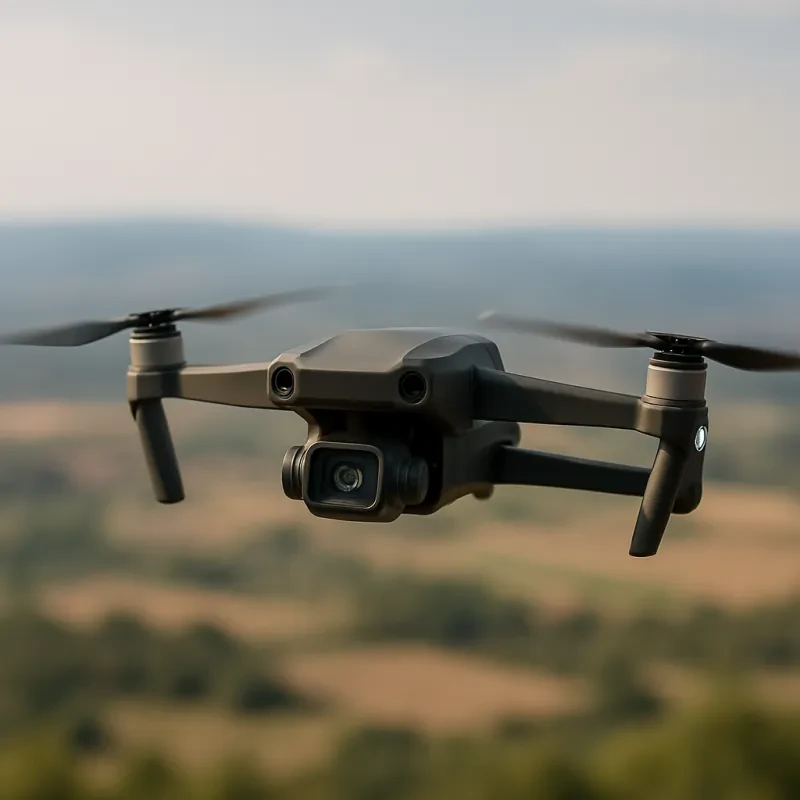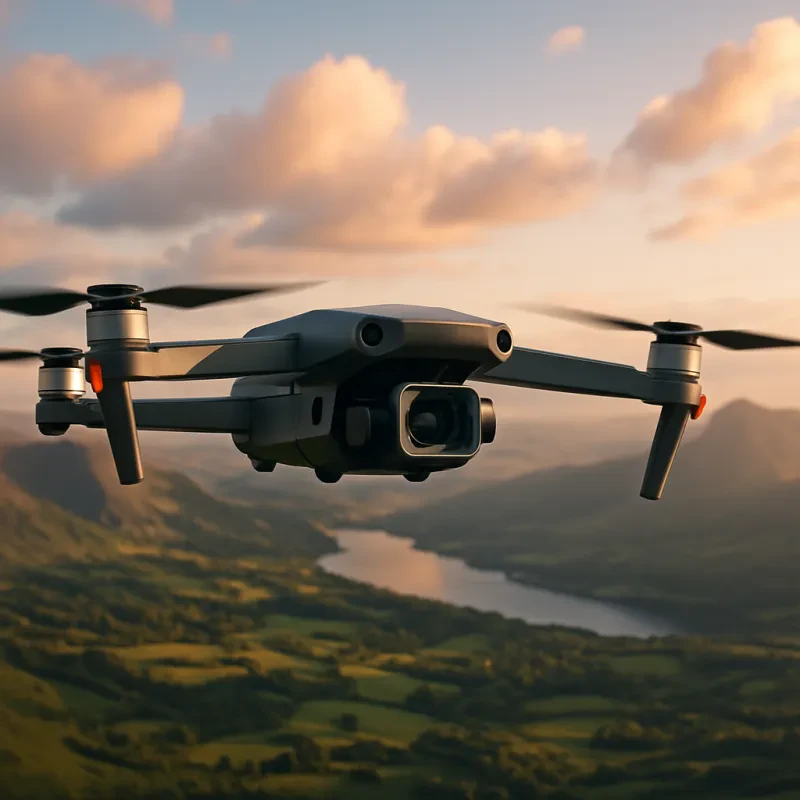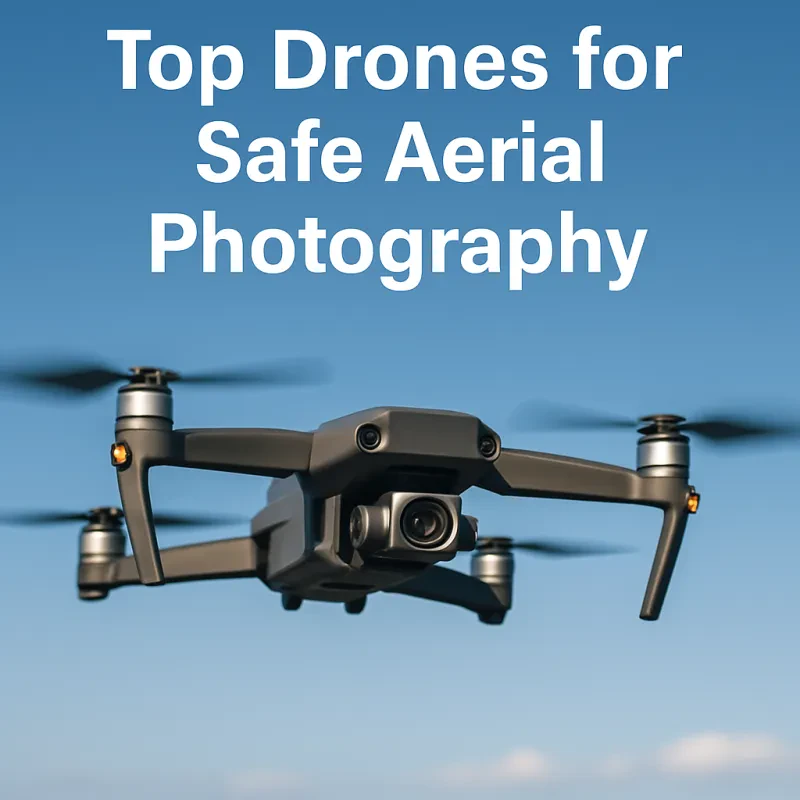Drones have gained immense popularity in recent years, appealing to both hobbyists and professionals. With a wide range of options available, navigating the drone market can be a daunting task. This overview aims to provide buyers with a better understanding of the different types of drones and their features to help make an informed decision.
Consumer Drones:For hobbyists, consumer drones are the most common choice. These drones come in various sizes and price ranges, offering features such as stabilized cameras for aerial photography and videography, GPS navigation for easy maneuverability, and simplified controls for beginners. Consumer drones are designed to be user-friendly, making them accessible to anyone interested in aerial photography as a hobby or for capturing stunning footage.
Professional Drones:Professionals in industries like filmmaking, agriculture, surveying, and more require drones with advanced capabilities. Professional drones often offer high-end cameras with interchangeable lenses, longer flight times, increased payload capacities for carrying specialized equipment, and enhanced stability features. These drones are designed to deliver exceptional performance, precision, and durability to meet the demands of various commercial applications.
Key Features to Consider:When buying a drone, it's crucial to consider certain key features. These include flight time (how long the drone can stay in the air on a single charge), maximum range (how far away the drone can fly from the controller), camera quality and stability (important for aerial photography and videography), GPS and obstacle avoidance capabilities (for safer and smoother flights), and overall build quality and durability. Understanding the purpose of the drone and the desired features will help buyers narrow down their options.
Hobbyist Drones: Features and Recommendations for Beginners
If you're looking to start your journey into the exciting world of drone flying as a hobbyist, there are several key features and considerations to keep in mind when purchasing your first drone. Beginner-friendly drones often offer a good balance between affordability, ease of use, and functionality.
One important feature to consider is the drone's stability and maneuverability. Look for drones equipped with built-in stabilizers, such as gyroscopes and accelerometers, which help maintain a steady flight and compensate for wind gusts. Additionally, opt for models that offer beginner or training modes, which limit the drone's maximum speed and responsiveness to prevent accidental crashes.
Another important consideration is the drone's camera capabilities, especially if you're interested in aerial photography or videography. Entry-level drones usually come with built-in cameras capable of capturing high-resolution images and recording videos in at least 720p. Some drones even offer features like live video streaming to your smartphone, allowing you to see the drone's perspective in real-time.
Finally, it's crucial to take into account the drone's battery life and flight time. Most hobbyist drones offer an average flight time of around 15-20 minutes, but this can vary greatly depending on the model and usage. Consider purchasing extra batteries or opting for drones with longer flight times if you desire more extended flying sessions.
Recommended hobbyist drones for beginners include popular models like DJI Mini 2, Parrot Anafi, and Autel EVO Lite. These drones offer a great balance of user-friendly controls, stable flight performance, decent camera capabilities, and competitive pricing. However, always research and compare different models based on your specific needs and budget to find the perfect drone to kickstart your aerial adventures!
Professional Drones: Choosing the Right Model for Commercial Use
When it comes to commercial use, drones have become indispensable tools for various industries. However, with a wide range of options available in the market, choosing the right drone can be a daunting task for professionals. Here are some key factors to consider when selecting a professional drone for commercial use.
1. Payload Capacity: Depending on the specific application, professionals need to ensure that the drone they choose has the appropriate payload capacity. Whether it is for aerial photography, videography, surveying, or delivery, the drone must be able to carry the necessary equipment or cargo successfully.
2. Flight Time and Range: For commercial purposes, longer flight times and extended ranges are crucial. Users need to look for drones with high-quality batteries that offer a longer flight time. Additionally, the drone must have a commendable range to cover the required distance, ensuring the smooth execution of tasks.
3. Advanced Features: A professional drone should come equipped with advanced features such as obstacle avoidance systems, GPS navigation, and stable hovering capabilities. These features not only enhance the safety of the flight but also ensure better accuracy and efficiency in completing tasks.
Essential Accessories: Enhancing Your Drone Experience
In recent years, drones have gained immense popularity among hobbyists and professionals alike. These versatile devices offer incredible aerial capabilities and have revolutionized numerous industries, including photography, videography, agriculture, and more. However, purchasing a drone is just the first step towards unlocking its full potential. To truly enhance your drone experience, several essential accessories are worth considering.
1. Propeller Guards: Protecting your drone's propellers is crucial, especially if you're a beginner. Propeller guards provide an additional layer of safety and can prevent accidental damage caused by collisions with obstacles. They also shield nearby objects and people from the spinning propellers, reducing the risk of injury.
2. Extra Batteries: While most drones have decent flight times, they typically tend to range between 15-30 minutes. To extend your shooting sessions, it's advisable to invest in spare batteries. Having a few extra power sources ensures that you can fly your drone for longer periods without interruption, allowing you to capture those perfect shots or complete important tasks.
3. Carrying Case: Drones are delicate gadgets that require proper protection during transportation. Investing in a high-quality carrying case is essential to safeguard your drone, its accessories, and any other peripheral devices you may have. A well-designed case with foam inserts will secure your drone and protect it from potential damages caused by bumps, drops, or rough handling while on the move.
4. ND Filters: Photography and videography enthusiasts will greatly benefit from adding neutral density (ND) filters to their drone kit. ND filters help control the amount of light entering the camera lens, enhancing the quality of aerial footage. These filters minimize glare, correct exposure imbalances, and enable the capture of cinematic shots even in bright or reflective environments.


